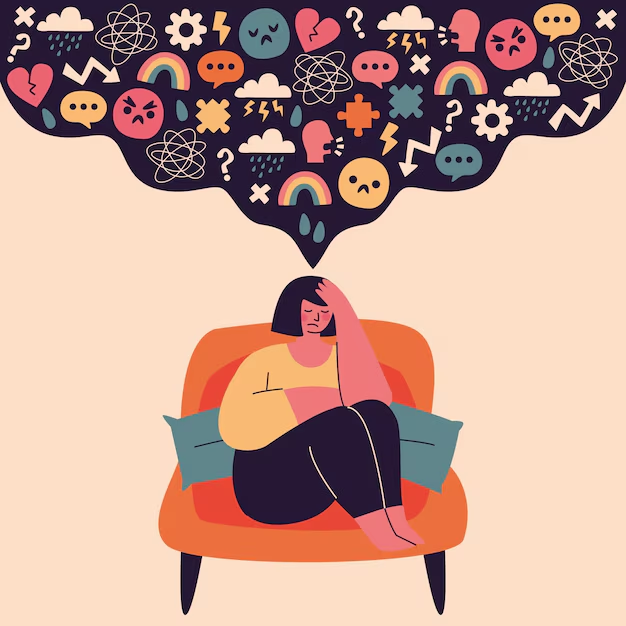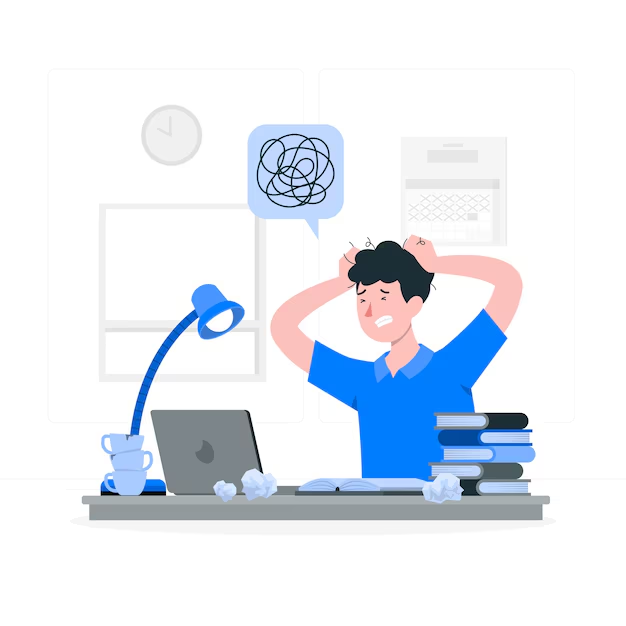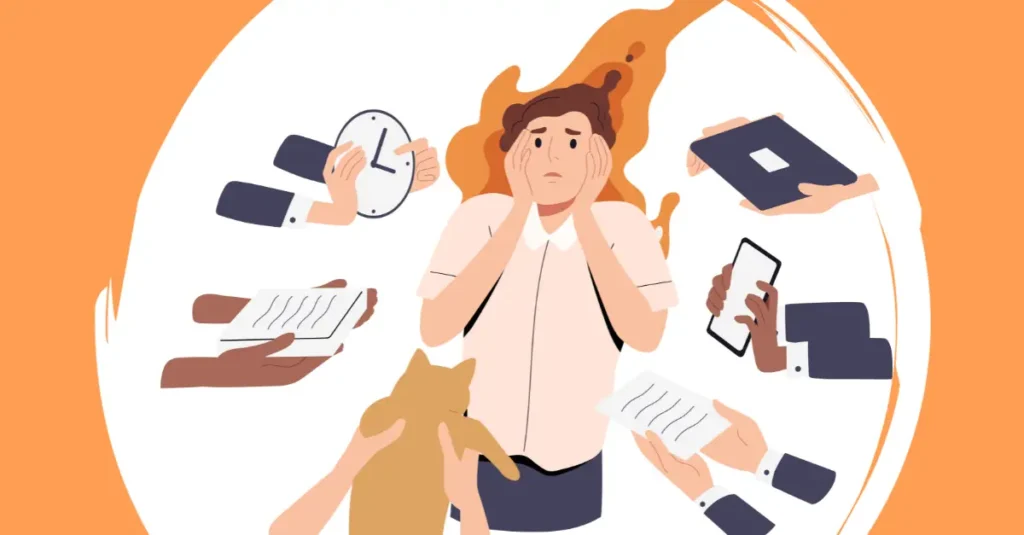What is Career Counseling?
Career counseling is a structured process that helps individuals make informed career decisions. It involves professional guidance to explore career options, develop career goals, and plan pathways to achieve them. Career counselors utilize various tools, such as psychometric assessments, aptitude tests, and personality evaluations, to understand an individual’s skills, interests, values, and aspirations. The guidance provided by career counseling is not limited to choosing a profession; it also encompasses advice on educational planning, skill development, and work-life balance.

According to Niles and Harris-Bowlsbey (2016), career counseling is a developmental process where individuals are guided to match their abilities and ambitions with career opportunities. This personalized support is particularly beneficial for students, young professionals, and even mid-career individuals looking for a career shift.
Read More- Career Counseling
Why is Career Counseling Important?
Career counseling is essential in today’s dynamic job market, where technological advancements and economic changes continuously reshape career landscapes. A lack of clarity in career choices can lead to frustration, wasted resources, and dissatisfaction. It equips individuals with the knowledge, confidence, and tools needed to navigate these uncertainties effectively.
Reasons for its Importance-
Some of the reasons why career counseling is important include-
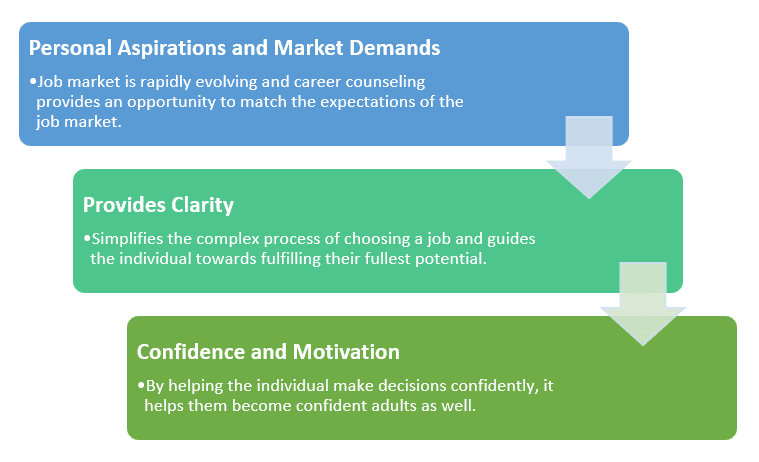
- Aligning Personal Aspirations with Market Needs- The job market evolves rapidly, with emerging fields and skills in demand. It helps individuals identify trends and align their career choices with these opportunities, ensuring long-term relevance.
- Providing Clarity in a Complex World- The abundance of choices in modern education and career options can overwhelm individuals. It simplifies this complexity, offering structured advice based on professional analysis.
- Building Confidence and Motivation- By offering clarity and setting achievable milestones, it fosters self-confidence. This is particularly beneficial for students and young adults at critical decision-making stages.
Read More- Career Paths in Psychology
Benefits of Career Counseling
The important benefits of career counseling includes-
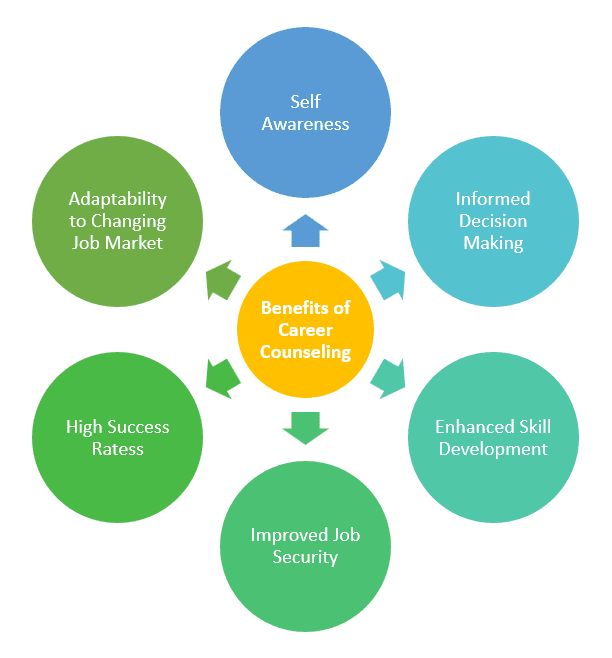
1.Self-Awareness- It encourages individuals to evaluate their skills, interests, and values. According to Savickas (2011), self-awareness is a cornerstone of career success, as it allows individuals to pursue paths that align with their true potential.
2. Informed Decision-Making- With expert guidance, individuals can weigh the pros and cons of different career options. This informed decision-making reduces the chances of costly mistakes, such as pursuing the wrong educational path or an unfulfilling career.
3. Enhanced Skill Development- Career counselors often identify gaps in skills and recommend strategies to fill them, such as pursuing certifications or gaining work experience. This targeted skill development increases employability.
4. Improved Job Satisfaction- A career aligned with personal interests and values leads to higher job satisfaction. Brown and Lent (2013) emphasize that individuals who make informed choices are more likely to remain engaged and motivated in their work.
5. Adaptability in a Changing Job Market- It prepares individuals to adapt to shifts in job market trends. It provides insights into new industries and guides them toward sustainable career options.
6. Higher Success Rate- Those who undergo it are better equipped to achieve professional success, as they enter their fields with clear goals and strategies.
Read More- Career Paths in Mental Health
Disadvantages of Not Opting for Career Counseling
Career counseling is an important step towards finding the right career, the disadvantages of not opting for it include-
1.Lack of Direction- Without professional guidance, individuals may struggle to identify their strengths and choose a career path that matches their aspirations. This often leads to unfulfilled potential and wasted opportunities.
2. Increased Anxiety and Stress- Career decisions are inherently stressful, and uncertainty exacerbates this. Lack of it leaves individuals vulnerable to prolonged anxiety.
3. Career Dissatisfaction- Many people end up in unfulfilling careers due to uninformed decisions. According to the National Career Development Association (n.d.), individuals without it are more likely to experience dissatisfaction and frequent job changes.
4. Wasted Resources- Choosing the wrong career path can result in unnecessary expenses on irrelevant education or training, wasting time and financial resources.
5. Missed Opportunities- Without exposure to new fields and market trends, individuals may fail to capitalize on emerging opportunities, leaving them at a disadvantage compared to those who receive professional guidance.
Career Counseling in Action
A study by the Journal of Career Assessment found that students who underwent it were 35% more likely to complete their education in their chosen fields and reported higher satisfaction with their career trajectories (Brown & Lent, 2013). Additionally, professionals who sought it during career transitions experienced faster reintegration into the workforce and reported better alignment with their personal goals.
References
- Brown, D., & Lent, R. W. (2013). Career Development and Counseling: Putting Theory and Research to Work. John Wiley & Sons.
- Niles, S. G., & Harris-Bowlsbey, J. (2016). Career Development Interventions in the 21st Century. Pearson Education.
- Savickas, M. L. (2011). Career Counseling. American Psychological Association.
- National Career Development Association. (n.d.). What is Career Counseling? Retrieved from https://ncda.org
- Journal of Career Assessment. (2019). The Impact of Career Counseling on Educational and Career Success.
Subscribe to PsychUniverse
Get the latest updates and insights.
Join 3,022 other subscribers!
Niwlikar, B. A. (2025, January 30). What is Career Counseling and 5 Important Disadvantages of Not Doing It. PsychUniverse. https://psychuniverse.com/career-counseling/

